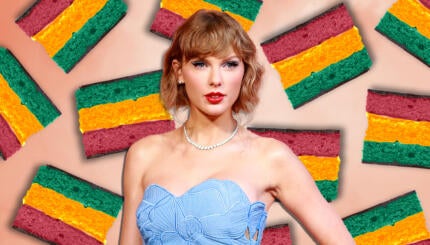The news feed these days reads like a juicy bit of pulp fiction. Every page scintillating and harrowing. With every paragraph, you find yourself mouth agape, eyes wide, astounded by the turn of events. Each bit is so engrossing that you don’t really care that the story does not quite weave together in a way that makes total sense. You are giddy with the road-side carnage and cannot turn away!
Except, it’s not the news. It’s our world today. And as the latest gruesome bit-Ambassador to the United Nations, Nikki Haley declares that the United States is withdrawing from the U.N.’s Human Rights Council because it is anti-Semitic, I’m left feeling exhausted by too much action and too much drama in too short a time. But perhaps that is the point.
The breakneck pace of events has many consequences for us as a populace. I will focus here on just four.
- Compassion fatigue
Research suggests that if you want to tug on the heartstrings, show an image of just one suffering individual. As soon as you show two people in, let’s say, an ad for Save the Children or an image of the latest school shooting, our capacity to care drops off precipitously. So what happens when we see image after image? Story after story? Compassion fatigue leads to disinterest and apathy. It also can lead to hopelessness, decreased interest in life-affirming activities, stress, anxiety, sleeplessness and so on. According to Traumatic Stress and the News Audience published by the Dart Center for Journalism and Trauma, this causes the public to become desensitized or resistant to helping people who are suffering.
- Spreading too thin
How can we possibly respond to it all? Recently, I took a few months off from writing for MyJewishLearning.com. When I returned, I decided to focus my efforts on gender dis-equity, #MeToo, and anti-human trafficking. But right now, our attention is on separated families at the southern US border and now the UN. It is not that we no longer care about workplace, sexual violence or that Harvey Weinstein and Bill Cosby are in jail. We just are also worrying and trying to figure out how to respond to so many other threats to our sense of what is right and what is profoundly wrong. We still have jobs to work, families to raise and lives to lead and now, we need to also think about threats of nuclear war, if our free speech rights are being slowly degraded and what it means when the US Attorney General quotes the New Testament to justify US policy decisions just to keep up.
- A battle with too many fronts
As each new episode of media drama unfolds, I wonder if we, as a nation, are able to properly respond to anything because we are being called to constantly take on everything. What happened with the March for Our Lives besides another shooting? What happened to Black Lives Matters besides more acts of racism that don’t even make it on the 10 o’clock news anymore? With so many fronts to fight for justice and against injustice, there may just not be enough people working on any of them to move the needle very far.
- Bread and Circus
This phrase comes out of the late first and early second centuries by Juvenal, a Roman poet of that time. It means that the government takes actions which gain approval from the masses not because they are right but because they are thrilling-like giving people bread or a circus. It is a diversion from our higher order needs by feeding our more base or immediate needs. In the television series, The Walking Dead, a thriving community has regular entertainment of pitting a zombie against a living person in an enclosed arena. People fill the makeshift grandstands to cheer the battle. It distracts, the Governor of the town explains, from the reality in which they live. It also distracts, it turns out, from his own nefarious plans. I wonder lately, is this us?
So what do we do?
First of all, now more than ever, taking good care of ourselves is critical. This may seem selfish or overly internal at a time where it seems there is a fire to put out on every corner. However, you cannot care for anyone else if you are not caring for yourself. It’s put the oxygen mask on yourself before someone else necessity thus ensuring your own access to oxygen. Breathing slowly and deeply right now does indeed help.
Secondly, choose your thing and stay with it. I believe that all the injustices-racism, sexism, xenophobia, hunger, violence, you name your favorite injustice, they are all one interconnected issue. I believe that there are brains out there that can figure out how to eradicate that one thing. And then they will need to implement the plan to cure the ill. Until that time, each of us takes on our own piece of the injustice pie. Maybe it is feeding hungry people, maybe it is writing the new policy, maybe it is getting as many people as possible to vote in the next election, maybe it is running for office. Whatever your thing is, stay with it and do not get pulled away. At the same time, it is important to stay aware of other issues especially the interconnectedness of things in the global age we now find ourselves in. To borrow from a late 80’s bumper sticker, think globally, act locally.
And lastly, don’t stop. As we learn in Pirkei Avot, the Ethics of Our Sages (2:16) lo alecha ha’melacha ligmor v’lo ata ben chorin l’hibatel mimenah. It is not yours to finish all that there is to be done. And, as a person of freedom, you cannot release your obligation to do what needs to be done. In an era where the to-do list gets longer every day, we do not have the luxury to succumb to compassion fatigue, to watch the circus and be still. There are these moments when it seems impossible. All of it. Regardless, you, me, everyone, cannot give up. In a recent post discussing the spies entering Israel and the inhumanity we’ve witnessed of late at the border, we read the following which gives me great hope. Even in the darkest night we can be guided by the tekhelet [the blue thread sometimes found in the fringes of a prayer shawl or tallis] of the blue-sky – that we are not condemned to wander and to lash out at those whom we perceive to threaten us – but rather to open our imagination to ways that things indeed can and will get better. We can have fresh eyes – and as our holy Zohar instructs us when faced with an intractable problem — seemingly tied in a Gordian Knot — to come and see.
Image from: http://blogs.timesofisrael.com/lo-alecha-w-thinner-frame-blue/



